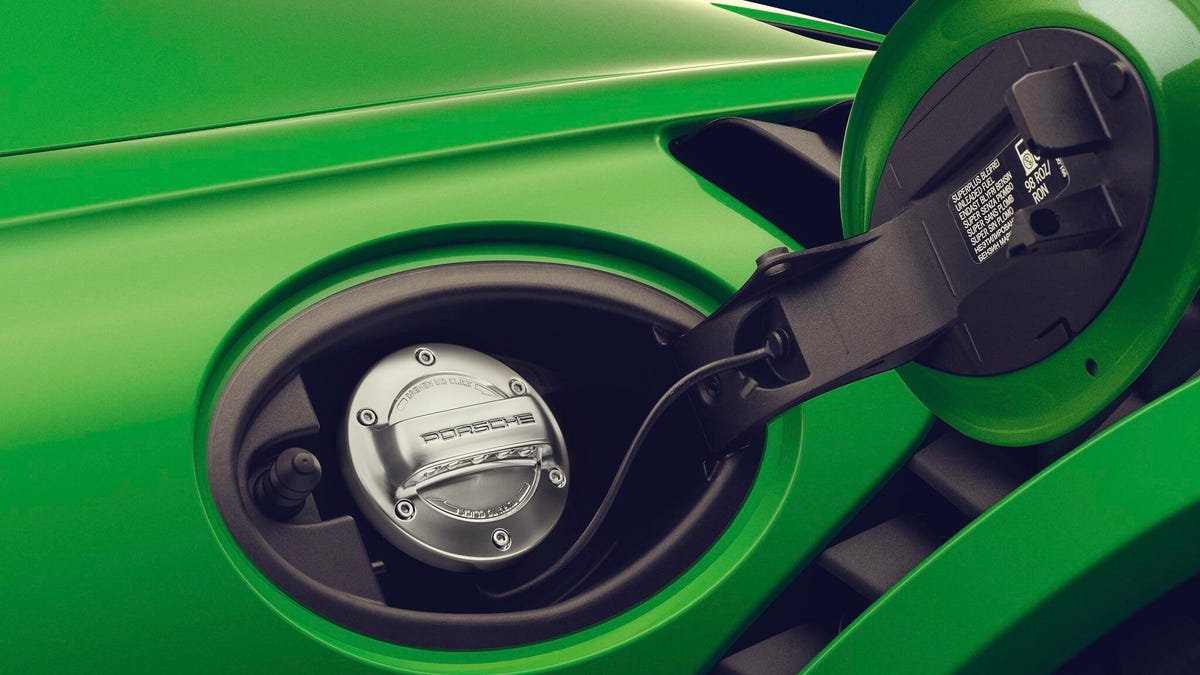How Porsche's new eFuel plant could pave the way for guilt-free classic-car motoring
Porsche and Siemens plan to build the world's first industrial-scale eFuel plant. The gas will be safe for use in vintage Porsches -- and your car.
Porsche and Siemens Energy have announced plans to link arms for a new eFuel factory. The German companies say the pilot project will result in the world's first industrial-scale plant for carbon-neutral synthetic fuel. The facility will be located in Southern Chile in a bid to capitalize on the country's strong wind energy, which will be used to power the plant sustainably.
The plan calls for an initial pilot production phase to produce around 130,000 liters of fuel -- over 34,000 gallons -- as early as 2022. Additional phases call for a dramatic ramp to 55 million liters by 2024 (over 14.5 million gallons) by 2024 and 550 million liters (145 million gallons) by 2026.
Wind energy will power the electrolyzers to split water into hydrogen and oxygen. CO2 will then be filtered out of the air and processed with the aforementioned hydrogen to create synthetic methanol. A proprietary methanol-to-gasoline process provided under license by Exxon Mobil results in e-gas. Porsche says the liquid fuel will be safe without modification for all of its cars, including classic models.
Porsche, which is initially investing around 20 million euros (roughly $24 million, £18 million or AU$33 million) in the project, sees the creation of carbon-neutral gasoline as a complement to the auto industry's drive toward electrification, not as competition with it. Company officials have already gone on the record saying that Porsche plans to electrify 50% of its new-car offerings by 2025, making use of both battery-electric and plug-in hybrid technology. But the German automaker still sees the potential for synthetic fuels to power all of the world's existing gas-powered models -- especially Porsches -- particularly in parts of the world where developing an electric car charging infrastructure proves problematic.
Dubbed Haru Oni, this new eFuel plant will be erected in Chile to take advantage of the country's strong and steady wind energy.
During a virtual media roundtable on Wednesday, Michael Steiner, Member of the Executive Board for Research and Development at Porsche, reiterated:
[T]he main strategy for Porsche is to push e-mobility ... but in addition, at least Europe, [we] will be dependent on importing a lot of energy. In 10 years. In 20 years. Maybe even 30 years from now. If we have to import energy, we could choose whether we import fossil energy or renewable energy. It [e-gas] is not a direct competition to e-mobility, it is in addition to e-mobility. Something that we see as an important second track.
Porsche will be the main customer for this eFuel initially, using the synthetic gasoline in so-called "beacon projects" including its race cars, at Porsche Experience Centers and in vehicle trials.
Porsche's home continent figures heavily into the plans for this eFuel, as the European Union has been aggressively pushing automakers and the fossil fuel industry to go carbon-neutral via the European Green Deal policy strategy. eFuel is seen as preferable to biofuel, because the latter's production process can impact forests and their ecosystems, as well as compete with crops that form part of the food chain.
There are a lot of moving parts to this eFuel commercialization challenge, including some unexpected ones. For instance, once the plant is up and running at scale, the plan is to ship refined fuel from Chile to Europe using a transport process that is carbon-neutral, which in itself is likely to be a significant logistical (if not technological) challenge. Additionally, Porsche is also already engaging world governments in conversation to get a handle on the potential tax ramifications of moving to eFuel, as gasoline has baked-in carbon-tax costs in most world markets that raise the price of the fuel. Finding success in the latter endeavor will be a key part of making eFuel cost-effective enough to end up at your corner gas station.
As part of the Volkswagen Group, Porsche will look to see if other divisions in the company are interested in participating in this initiative going forward. Furthermore, Porsche's Steiner says that the company is open to other automakers taking an interest in the project as well.


